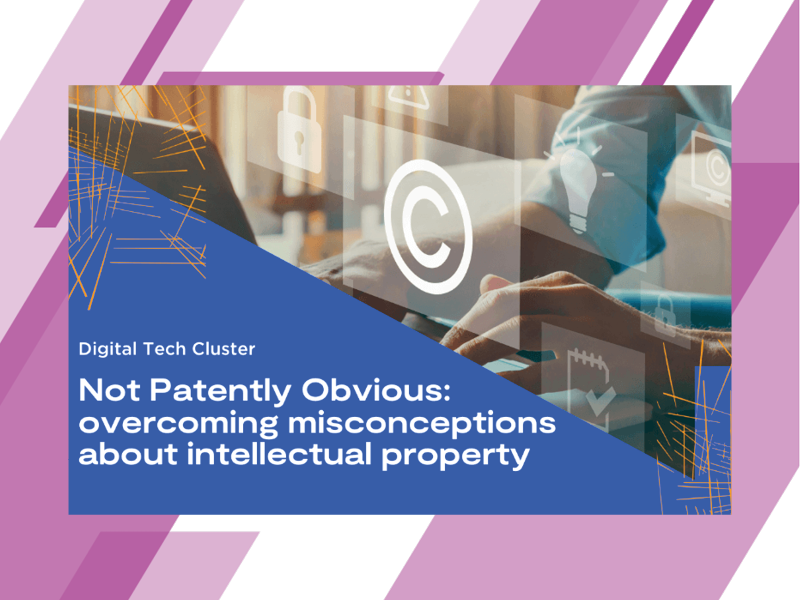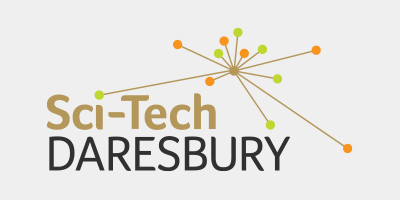June 17, 2022
Not Patently Obvious: overcoming misconceptions about intellectual property
Mike Williams, Partner and Patent Attorney at Marks and Clerk, a firm of international IP experts, addresses the issues that many digital tech companies experience.

Intellectual property is a tricky topic for tech entrepreneurs. Over the years I’ve heard founders worry about it, ignore it and add it to the never-ending to-do list. There are many misconceptions about IP and I recently spoke with Mike Williams, Partner and Patent Attorney at Marks and Clerk, a firm of international IP experts, to address the issues that many digital tech companies experience.
I have had tech entrepreneurs say to me “software isn’t patentable” and this has led to many founders delaying the development of any sort of IP strategy until after they have significant cash in the bank. Is software patentable?
Mike Williams: “In the past, there was a perception that it was difficult to obtain a software patent at the European and UK Patent Offices due to software being defined as excluded subject matter. However, provided that certain conditions are met, software can often be patented in the UK, Europe and other jurisdictions around the world. Given the misunderstandings in this area, we would strongly advise speaking with real experts to discuss whether your software inventions can be patented.”
At what stage should founders be thinking about this?
Mike Williams “Consider early on whether you want to get protection for your invention, and definitely before going to market. The subject matter of a patent application must be novel in order for the patent to be granted, with novelty assessed in relation to information publicly available on the effective filing date of the application.”
Does disclosing your software invention before a patent has been filed cause problems?
Mike Williams “In the UK and Europe, you can’t get a patent for something that has already been disclosed outside of a confidential setting. Save for a few rare exceptions, any information made available to the public before the effective filing date may be cited against a patent application.
However, if you have already disclosed you may still be able to get protection in some other countries, notably the USA.”
If a patent is not possible, is it worth securing copyright protections?
Mike Williams “Copyright may not offer you the protection you think it does. Copyright is a much less robust form of protection than a patent; copyright protects the expression of an original work in the tangible, fixed form in which it has been set down (e.g. the programming code of the software in the programming language it is written in).”
I heard it is not really worth copyrighting software as it has to be all the lines of code as a whole so someone could steal 99% of it without issues. I’m guessing that’s wrong!
Mike Williams “Copyright can be used to prevent copying a portion of the software code. Copyright also has the advantage that it exists automatically, the moment you write your code. However, reliance on copyright protection means you must prove that direct copying occurred for any relief to be sought. If the code is different, copyright will not apply, even if the code does the same thing.
In contrast, software patents protect the inventive concept behind the software, therefore providing stronger protection than copyright. A patent is infringed when an unauthorised party (the “infringer”) works your invention even if the infringer did not copy from you.”
OK, so patents are best but copyright can be useful where copying has taken place. What other things should tech founders think about when it comes to IP?
Mike Williams “Even if you are not interested in obtaining a patent for your product, do you know if you are infringing anybody else’s rights? If there are existing registered rights in force, you run the risk of having to stop selling, paying damages/royalties, or potentially being sued and becoming embroiled in infringement proceedings. Your own IP can be used to stop competitors using your invention but does not necessarily ensure you are free to use your invention - having a patent covering one aspect of your product does not preclude a competitor having their own patent covering a different aspect.”
If you license software correctly I guess you can assume you are safe but it sounds like tech companies can still get caught out if they unknowingly build software that’s already registered by someone else. How can they protect against unknowns like that?
Mike Williams: “A freedom-to-operate opinion can set your mind at rest before you enter the market.”
There is a cost to securing patents, what would you say is the real value in having them?
Mike Williams “Patents aren’t just for big businesses and can be even more important to protect your market as an SME. Patents (as well as trade marks and registered designs) are important intangible assets that can be used to secure investment, can be licensed, will act as a deterrent to competitors, and increase the value of your business.”
Some great insights from Mike there and if you’d like to learn more STFC are also running a lunchtime workshop with Marks and Clerk on Thursday 30 June. If you’d like to register for the free, online workshop please follow the link below:
#DigitalDaresbury



